Starting Fresh: A Conversation with Jin Kyung

Jin Kyung escaped North Korea after experiencing her own modern-day Cinderella story. Her parents divorced when she was still young, and for a short time she lived comfortably with her father, but when her father remarried a year later, Jin Kyung’s life took a turn for the worse. Her father often worked away from home, leaving her alone with her stepmother, who scolded and punished her every day. Resolving to find a better life for herself, she escaped to China.
Jin Kyung was sold soon after crossing the border, but the family she had been sold into showed kindness and love to her. Unlike many women who are sold, she was allowed to come and go as she pleased. She came to be fond of the Chinese man and his parents. However, Jin Kyung wasn’t ready to settle for a life as an illegal immigrant in China despite being grateful for a happy home. Her new family helped coordinate her escape to South Korea, which she admits is not a common occurrence. After resettling in South Korea, she attended school and eventually reunited with the Chinese man, who is now her husband. They have a four-month-old son together and she’s currently a stay-at-home mom.
Our resettlement coordinator Anna visited with Jin Kyung and her son recently to see how they're doing.

Anna: What was the best thing that happened to you recently?
Jin Kyung: I’m grateful for every day for numerous reasons. It especially warms my heart to see my baby smiling, although taking care of him is sometimes physically demanding. My husband and I talked about having a second, but I’m not sure if I can handle it if I start attending college. In fact, I also passed the GED this past April and just submitted two college applications yesterday as a hair design and make-up artist major.

Anna: What's your biggest challenge in South Korea?
Jin Kyung: Raising a child is very challenging and sometimes tiring, but I enjoy it so much and want to have a second one as soon as possible.
After I got out of Hanawon and for a few months after that, I felt so lost and clueless.

Anna: How did you overcome the challenge?
Jin Kyung: Although many people recommended for me to go back to school, I only wanted to earn money to send to my family in North Korea. I soon found a job at a factory, but realized that there’s a limitation to the types of careers that I can pursue if I don’t get a proper education. I realized what my priority should be after working in a labor-intensive job at the factory.

Anna: Who has been the biggest help (outside of LiNK) to you since you arrived in South Korea?
Jin Kyung: A teacher from the alternative school that I attended the last few years. She is the one who actually got me interested in studying and led me to gain different perspectives on the world and life. She’s such an enthusiastic person who didn’t mind if I asked her questions, and she was always available when I needed her. I’ve been able to achieve as much as I have up until now thanks to her.

Anna: What was your biggest challenge in North Korea?
Jin Kyung: Living itself was very hard. I always faced starvation and struggled with serious domestic conflict. When I reached puberty, I abruptly left home to escape from that reality.
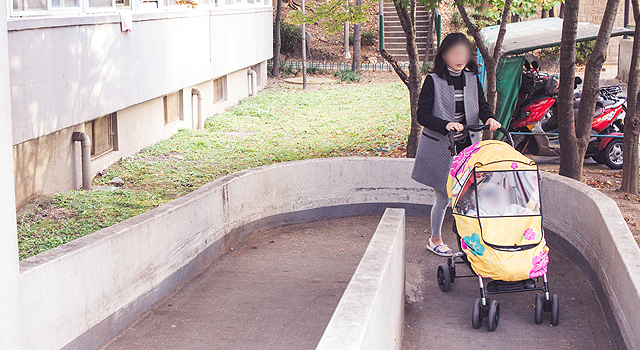
Anna: What is it like living in freedom in South Korea?
Jin Kyung: I believe resettling in a new society is not easy whether you have more freedom or not. I had an inferiority complex because I had a different intonation and background from South Koreans. For example, I couldn't even understand what a bank clerk was saying to me one time. I used to care so much what other people thought about me. It just takes time to adjust to a new community.

Anna: What is something that you started to do in South Korea that you never did before?
Jin Kyung: STUDY! I've always wanted to attend school to study and make friends since I was back in North Korea, but I had to leave school at a young age for family reasons. At first, I had no confidence in myself to study again, and I was honestly afraid to start anything at that time. The teacher whom I mentioned earlier, she boosted my confidence by lavishing me with praise. She encouraged me with praise for one correct answer instead of scolding me over nine wrong answers. In spite of many unfamiliar words in math, Korean, science, sociology, and history classes, I quickly gained more confidence and started to catch up! I’m still so proud of myself for passing the GED this year and I’m anxious, yet excited, to start college soon.

Anna: Have your perceptions of Americans and South Koreans changed?
Jin Kyung: I honestly had no spare time to care anything other than living day by day. I really didn't know much about other countries, but the fact that I grew up hearing bad things about them gave a negative impression. I actually used to think that the U.S. is the cause of separation of the Korean peninsula and wished that the U.S. had never existed, however, those thoughts all changed once I arrived in China by simply watching Korean movies and dramas.

Anna: What advice would you give to a friend who just arrived in South Korea?
Jin Kyung: I don’t think I’m in a position of giving them advice because there are many defectors who have lived here longer than I have. Nonetheless, I realized a few things as I resettled in South Korea. I wish North Korean defectors opened up their mind more to accept this new culture and engaged with South Koreans. I believe that it’s difficult to understand someone’s hardship if you haven’t been in the same situation, so I, as a North Korean defector, would like take an approach to get along with South Korean friends.

Anna: How often do you think about North Korea? What do you think about?
Jin Kyung: I should, but I tend not to think much about North Korea. I get upset whenever I think of North Korea because it brings out my hurtful memories and struggles. I’m also so sad and feel pity for those who still live under the miserable circumstances.
You can help more North Korean refugees escape China and resettle in a safe country. Start a fundraiser today!
Foreign Media in North Korea - How Kpop is Challenging the Regime
Movies, TV shows, and music hold power. They’re a way for us to connect through common experiences, reckon with different sides of humanity, and revel in the beauty of being here at all. They transport us to another time and place- perhaps one of our imaginations- and most importantly, allow us to dream and imagine a limitless future.
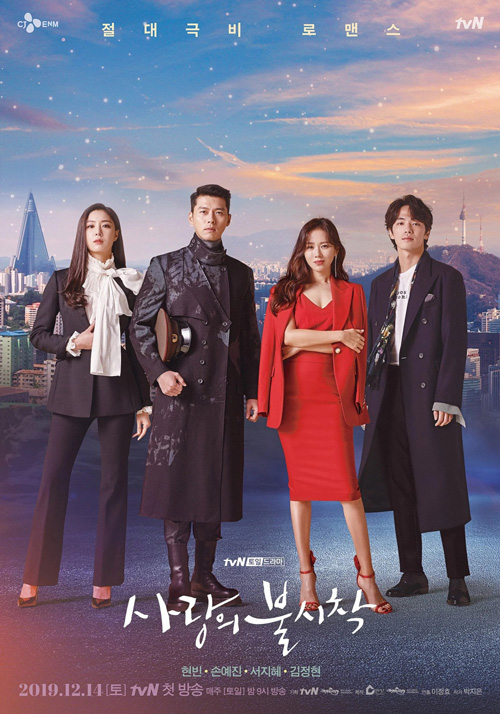
In recent years, South Korean media and entertainment has gained international recognition. People like Hyun Bin and Son Yejin, the stars of popular Korean drama Crash Landing on You, have become household names, while Parasite swept the 2020 Academy Awards and music from K-pop groups like BTS are charting globally.
Meanwhile, just across the border, North Korea remains one of the most closed societies in the world. Yet even in the “hermit kingdom,” foreign media is accelerating empowerment of the people and change within the country!
Forced Isolation and the Regime’s Information Monopoly
The North Korean government has maintained power for decades through a system of imposed isolation, relentless indoctrination, and brutal repression. A complete monopoly on information and ideas within the country has been key- outside media threatens to challenge the legitimacy of their propaganda, and by extension, their control.
The 2014 United Nations Commission of Inquiry on Human Rights in North Korea reported an almost complete denial of the right to freedom of thought, conscience, and religion as well as of the rights to freedom of speech, opinion, expression, and association.
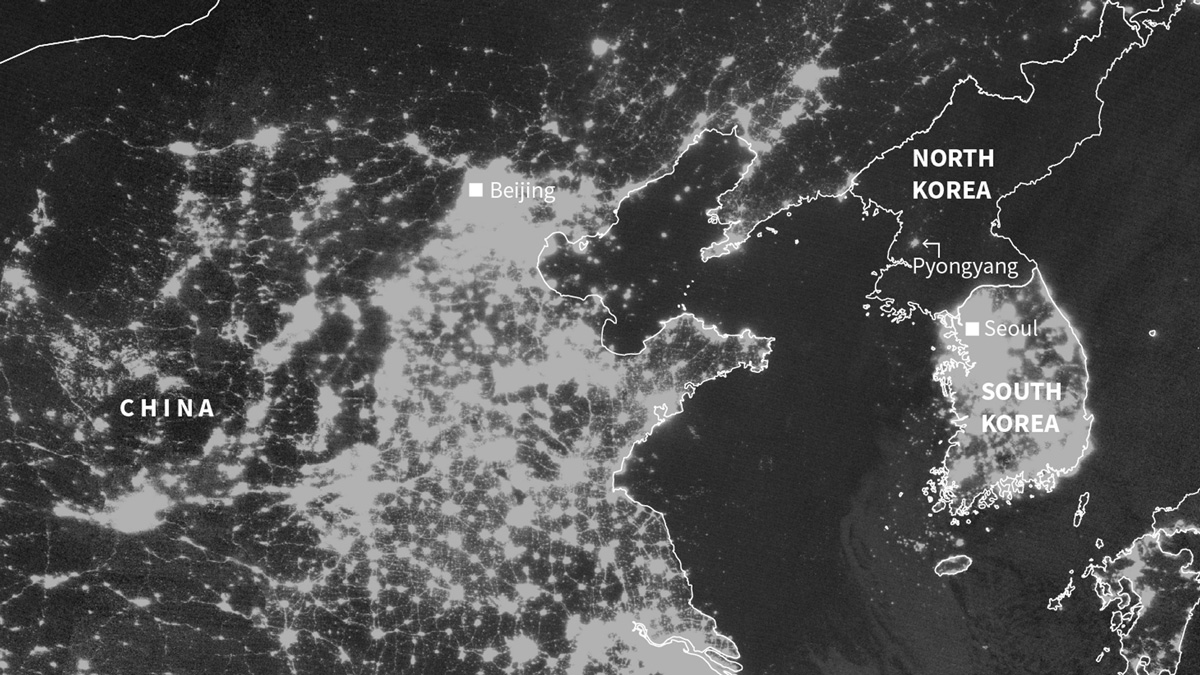
The regime employs a range of strategies to enforce information control:
- Restricting movement across borders and within the country
- Random house searches
- Severe punishment, including public executions, to deter foreign media consumption and sharing
- Sophisticated digital surveillance
- Jamming phone signals and locating users through signal triangulation
- Mobile OS file signature system that only permits government-approved apps and files
The Spread of Foreign Media
Despite this isolation and unparalleled internal restrictions, the North Korean people have been quietly changing their country from within, including through foreign media access. Through market activity and the movement of people and goods across the Chinese border, they have forced the gradual opening up of their society. Movies and music are smuggled into the country on USBs, SD and MicroSD cards, and small portable media players, offering illicit access to information from the outside world.
With lights off and windows shuttered, North Koreans will watch foreign media despite the risks. If all else fails, bribes are a way for people to reduce punishment if caught. Most North Korean police and government officials rely on bribes to survive, and some defectors complain that they are actually the biggest consumers of foreign media because they confiscate so much.

Information Technology in North Korea
Within North Korea, a broad range of information technologies are available, although they should be registered with authorities. Laptops and computers officially run on a government operating system, Red Star OS, while the North Korean intranet, Kwangmyong, is air-gapped from the internet and heavily surveilled. However, in practice, many North Koreans have non-networked devices used for games, editing software, watching videos, and to copy, delete and transfer media on removable devices.
Mobile phones are also common with approximately 6 million on the North Korean network, meaning roughly 1 in 4 people have one. These North Korean phones generally cannot make international calls and the operating system limits users to approved state media (programs have been developed to bypass this security). On the other hand, smuggled Chinese phones can be used in border regions on the Chinese network. These have been crucial for staying in touch with relatives who have escaped or defected, who often send back money and information from the outside world.
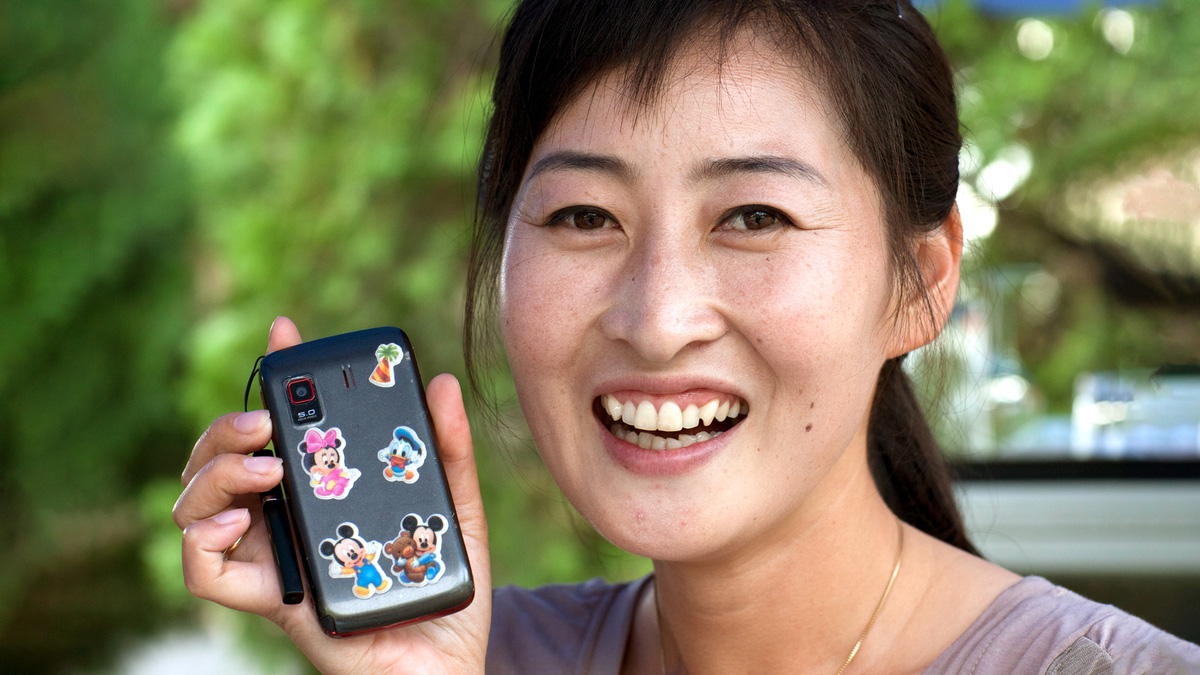
Radios are the only channel of foreign media and news available real-time across the country. While they should officially be registered and fixed to North Korean stations, it is relatively easy to tamper with radio sets to pick up foreign broadcasts. In border regions, some TVs can also pick up live programming from South Korea and China. Traditionally, TVs were connected to DVD players, but newer LCD televisions also have direct USB input ports.
How Foreign Media Changes Perceptions
Among foreign media, entertainment from South Korea is particularly attractive, produced in the same base language by people with the same ancestry. They contain glimpses of rich and free realities just across the border. In comparison, domestic North Korean media seems old-fashioned and disingenuous, designed to reinforce the regime’s ideologies.
As North Koreans learn more about life, freedom and prosperity in the outside world, and their own relative poverty, the regime’s ideology and control are eroded.
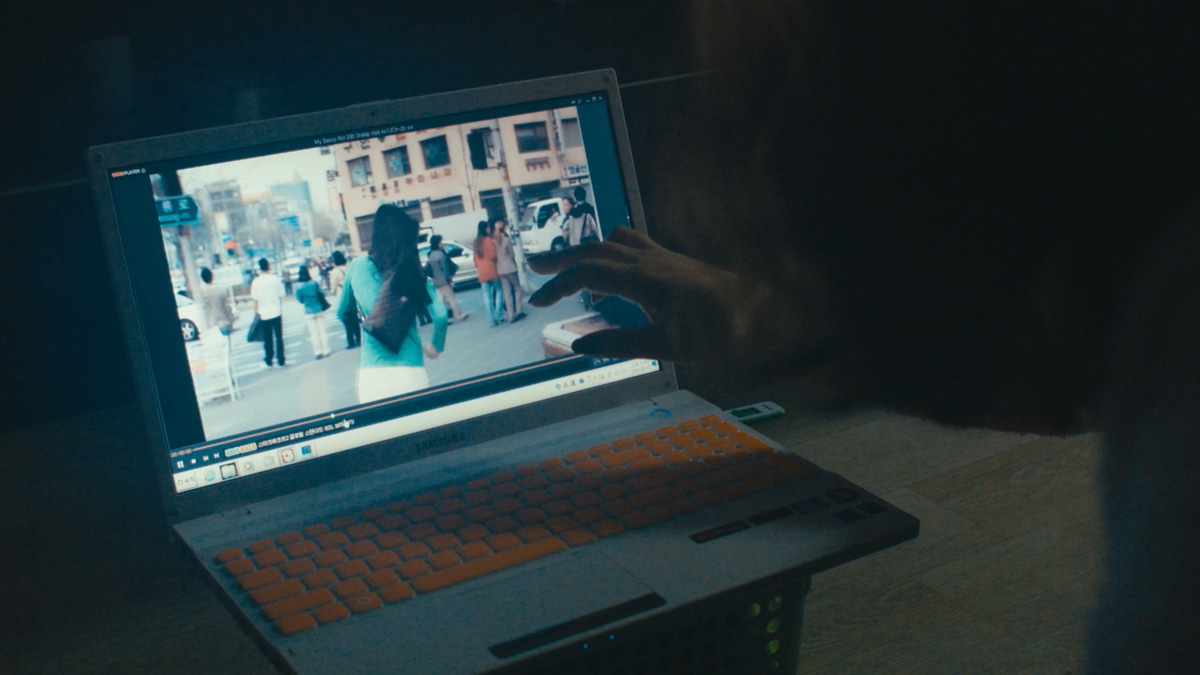
“At first you see the cars, apartment buildings, and markets and you think it must be a movie set. But the more you watch, there’s no way it can be just a set. If you watch one or two [movies] it always raises these doubts, and if you keep watching you know for sure. You realize how well South Koreans and other foreigners live.”
– Danbi, escaped North Korea in 2011
Empowered by foreign media, North Koreans are exploring their creativity and potential through everyday acts of resistance- using South Korean slang, copying fashion styles, and sharing pop culture references. In this culture war, Kim Jong-un has called for crackdowns on "unsavory, individualistic, anti-socialist behavior" among young people to restrict freedom of expression.
Foreign media also facilitates shared acts of resistance. People will swap USB devices with trusted friends and neighbors, increasing confidence in one another through a symmetrical transaction. Some people may also watch and discuss movies and shows together, increasing the media’s subversive influence and creating social networks.
The Regime’s Response
During the pandemic, we’ve seen unprecedented levels of isolation and restrictions, closing off the country more than ever before. To buttress control, Kim Jong Un has simultaneously increased crackdowns and punishments on foreign media consumption. In December 2020, the “anti-reactionary thought law” made watching foreign media punishable by 15 years in a political prison camp.
While the situation is harrowing, the government’s extreme response underscores the power of foreign media. The regime recognizes that social changes driven by North Korean people are a threat to their authority and control in the long term.
Accelerating Foreign Media Access and Change
Moving forward, increasing access to outside information is one of the most effective ways to help the North Korean people and bring forward change.
Information and technology support for North Korean people has historically been an under-utilized and under-invested strategy. LiNK Labs is our area of work focused on this opportunity- we’re developing technologies, networks, and content to empower North Korean people with access to information and ideas from the outside world.




